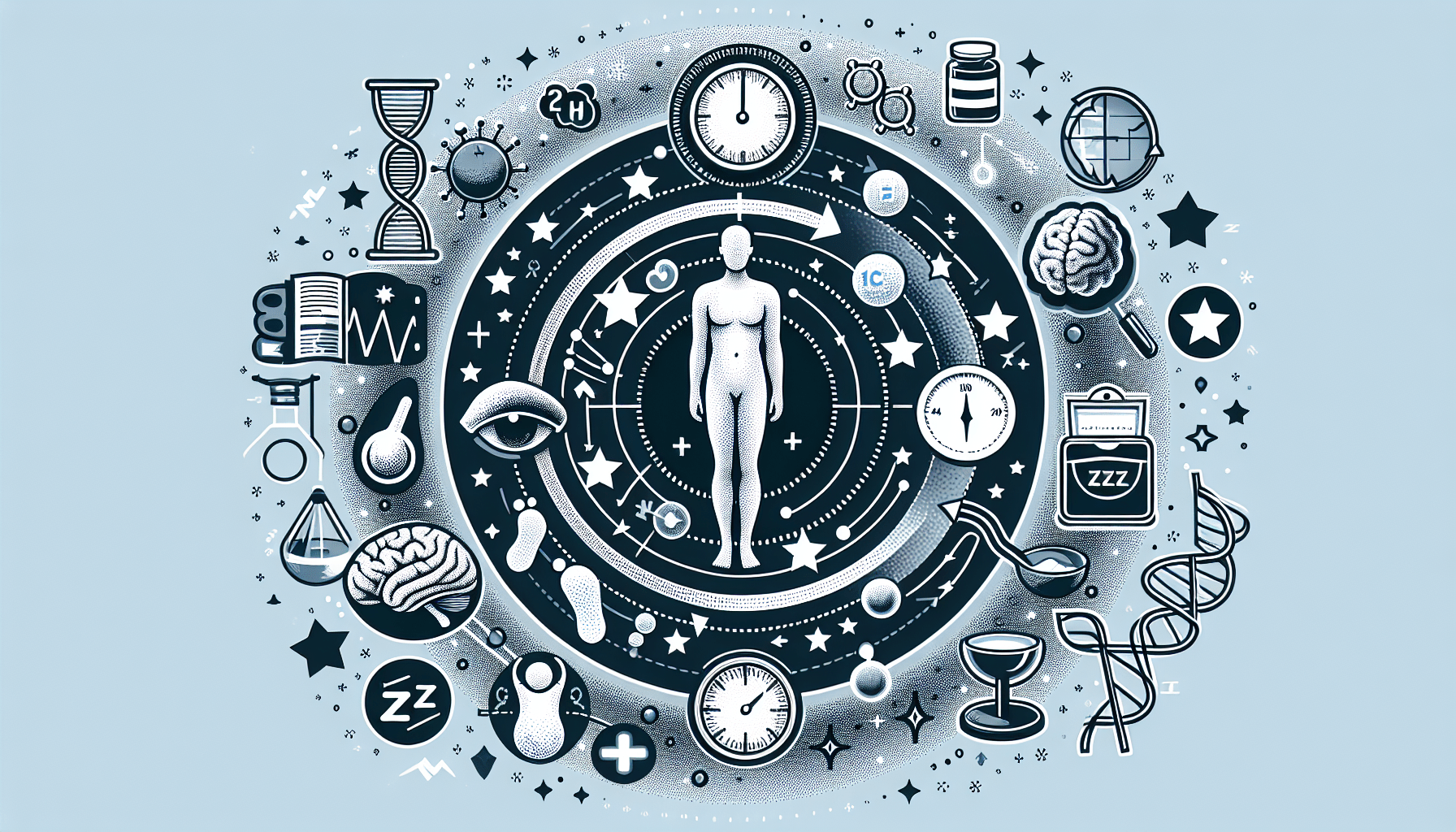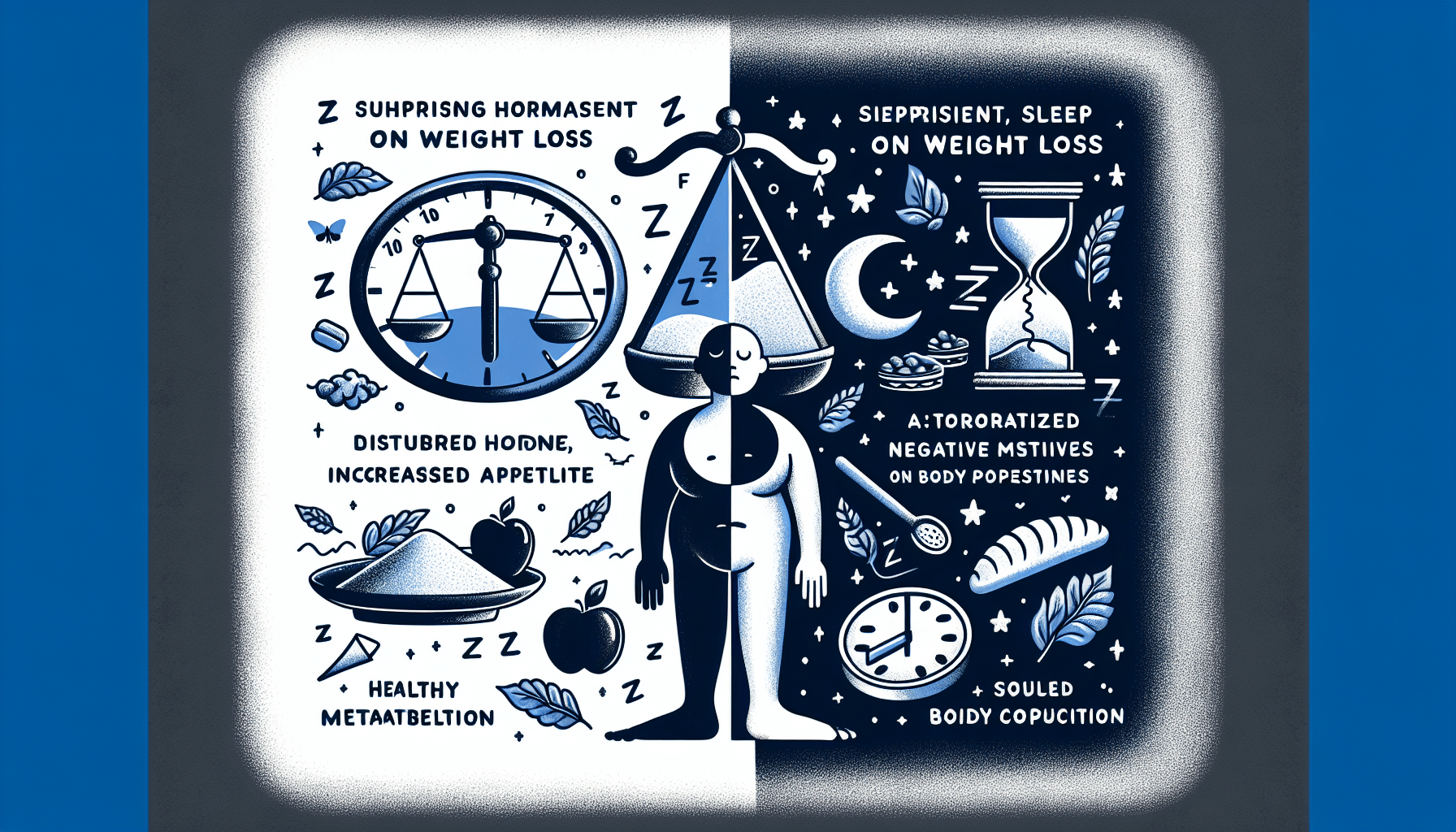Losing weight can often feel like an uphill battle, with countless diets and exercise plans to choose from. However, what if I told you that there may be one key factor that you’ve been overlooking in your weight loss journey? It turns out that sleep, yes, good old-fashioned shut-eye, can have a surprising impact on your weight loss efforts. Research has shown that lack of adequate sleep can throw off your body’s hormonal balance, making it harder for you to lose those extra pounds. So, before you reach for that next diet plan, consider giving yourself the gift of a good night’s sleep. Remember, though, always consult a health professional before making any changes to your diet or exercise routine.
Discover the Ultimate Weight Loss Secrets Here!
The Importance of Sleep for Weight Loss
Losing weight can be a challenging journey, but did you know that getting enough sleep plays a crucial role in this process? Sleep directly affects various aspects of our bodies, including hormones, metabolism, muscle mass, cravings, and even exercise performance. In this article, we will explore the fascinating link between sleep and weight loss, and how you can optimize your sleep to achieve your weight loss goals.
Understanding the Link Between Sleep and Weight
Sleep and weight are deeply interconnected. Research has shown that inadequate sleep can lead to weight gain and make it harder to shed those extra pounds. This connection may seem surprising, but several factors come into play.
How Sleep Affects Hormones Related to Weight Loss
Sleep has a direct impact on hormones that control hunger and fullness. When you don’t get enough sleep, your body produces more ghrelin, the hormone that stimulates appetite, while simultaneously reducing levels of leptin, the hormone that signals fullness. This hormonal imbalance can lead to overeating and weight gain.
Sleep Deprivation and Increased Calorie Intake
Sleep deprivation not only affects hormone regulation but also increases your vulnerability to poor food choices. Studies have found that when sleep-deprived, individuals tend to consume more high-calorie, carb-rich foods, which can contribute to weight gain. Additionally, lack of sleep can impair judgment and decision-making abilities, making it harder to resist unhealthy temptations.
Sleep Quality and Appetite Regulation
It’s not just the quantity of sleep that matters; quality is equally important. Poor sleep quality can disrupt the delicate balance of hunger and satiety hormones, leading to increased appetite and reduced feelings of fullness. This can make it challenging to stick to a healthy eating plan and potentially hinder weight loss efforts.
The Role of Sleep Duration in Weight Loss
Now that we understand how sleep influences weight, let’s delve into the optimal duration of sleep for weight loss.
The Recommended Amount of Sleep for Weight Loss
Experts suggest that adults should aim for 7-9 hours of quality sleep per night to maintain overall health and support weight loss goals. However, individual needs may vary, and it’s essential to listen to your body and adjust accordingly.
The Effects of Insufficient Sleep on Weight Loss Efforts
Consistently getting less than the recommended amount of sleep can sabotage your weight loss efforts. Sleep deprivation can disrupt your metabolism, making it harder for your body to burn calories efficiently. It can also lead to increased cravings, reduced motivation for physical activity, and decreased muscle mass. These factors combined can hinder weight loss progress and make it harder to reach your goals.
Click Here for Proven Fat-Burning Strategies!
Sleep and Metabolism
Beyond hormonal regulation, sleep also affects our metabolism, which plays a significant role in weight management.
The Influence of Sleep on Metabolic Rate
Multiple studies have shown that inadequate sleep can lower our resting metabolic rate. This reduction means that our bodies burn fewer calories at rest, making weight loss more challenging. Additionally, sleep deprivation has been linked to an increased risk of developing insulin resistance, which can further impact metabolic health.
The Impact of Sleep on Insulin Sensitivity
Sleep deprivation disrupts insulin sensitivity, making it harder for our bodies to process glucose effectively. This impaired insulin sensitivity can lead to elevated blood sugar levels, putting individuals at a higher risk of developing type 2 diabetes and obesity. Therefore, ensuring adequate sleep is crucial for maintaining healthy insulin levels and supporting weight loss efforts.
Sleep and Muscle Mass
Apart from weight loss, sleep also plays a vital role in muscle recovery and development.
The Relationship Between Sleep and Muscle Recovery
During sleep, our bodies repair and rebuild muscle tissue that has been stressed during the day, especially during exercise. Without sufficient sleep, this recovery process is impaired, and muscle damage may accumulate, hindering future workouts and progress toward building lean muscle mass.
The Effects of Sleep Deprivation on Muscle Development
Not getting enough sleep can also hinder muscle building efforts. Growth hormone, which is vital for muscle growth and repair, is primarily released during deep sleep. When sleep-deprived, the release of growth hormone is reduced, making it harder for muscles to recover and grow. As a result, individuals may experience decreased performance, increased risk of injury, and difficulties with muscle development.
Unlock Your Path to a Healthier You!
Sleep and Cravings
Have you ever noticed that you crave unhealthy foods more when you haven’t slept well? There is a direct connection between sleep and cravings, which can significantly impact weight loss.
The Connection Between Sleep and Food Cravings
Sleep deprivation affects the reward centers of our brains, leading to increased cravings, especially for high-calorie, sugary, and fatty foods. This can be attributed to the disruption of the hormone balance that regulates hunger and fullness, making it harder to resist indulging in unhealthy snacks.
The Role of Sleep in Managing Emotional Eating
Many individuals turn to food as a coping mechanism for stress and emotions—a phenomenon known as emotional eating. Inadequate sleep can increase stress levels and impair emotional regulation, making it more challenging to resist emotional eating. By prioritizing sleep and ensuring proper rest, you can better manage emotions and reduce the reliance on food for comfort.
Sleep and Exercise Performance
Regular exercise is undoubtedly crucial for weight loss, but did you know that sleep plays a significant role in optimizing exercise performance?
The Effects of Sleep on Physical Performance
Sleep is directly linked to various aspects of physical performance, including endurance, strength, and reaction time. Inadequate sleep can impair these factors, resulting in reduced athletic performance and potentially hindering weight loss results.
The Importance of Sleep for Muscle Repair and Growth
Exercise places stress on our muscles, causing micro-tears that require sufficient sleep to heal and grow stronger. Without adequate sleep, the recovery process is compromised, leading to increased muscle soreness, decreased performance, and an overall slower progress towards weight loss and muscle development goals.
Practical Tips for Improving Sleep
Now that the importance of sleep for weight loss is clear, let’s explore some practical tips for improving your sleep quality and duration.
Establishing a Consistent Sleep Schedule
Maintaining a consistent sleep schedule is one of the most effective ways to optimize sleep. Try to go to bed and wake up at the same time every day, even on weekends, to regulate your body’s internal clock and promote better sleep.
Creating a Bedtime Routine for Relaxation
Developing a relaxing bedtime routine can signal to your body that it’s time to wind down and prepare for sleep. Incorporate activities such as reading a book, taking a warm bath, or practicing relaxation techniques to calm your mind and promote better sleep.
Creating a Sleep-Friendly Environment
Your sleep environment plays a crucial role in the quality of your sleep. Ensure your bedroom is cool, dark, and quiet to promote optimal sleep conditions. Invest in a comfortable mattress, supportive pillows, and consider using blackout curtains or an eye mask if necessary.
Avoiding Stimulants Before Bed
Stimulants like caffeine and nicotine can disrupt sleep. Avoid consuming these substances close to bedtime, as they can interfere with falling asleep and reduce the overall quality of your sleep. Instead, opt for calming herbal teas or other decaffeinated beverages.
A Holistic Approach to Weight Loss
While sleep is undoubtedly essential for weight loss, it’s crucial to remember that it’s just one piece of the puzzle. To achieve optimal results, it’s essential to combine healthy sleep habits with a well-balanced diet and regular exercise routine.
Combining Sleep, Diet, and Exercise for Optimal Results
To maximize your weight loss efforts, strive for a holistic approach that integrates healthy sleep habits, nutritious eating, and regular physical activity. By nourishing your body with wholesome foods, prioritizing quality sleep, and engaging in a well-rounded exercise routine, you can create a solid foundation for sustainable weight loss.
The Role of Stress Management in Weight Loss Efforts
Stress can take a toll on both sleep quality and weight loss. Incorporating stress management techniques like meditation, yoga, or deep breathing exercises into your daily routine can support both restful sleep and weight loss goals. By managing stress effectively, you can cultivate a healthier mindset and make positive choices throughout your weight loss journey.

Seeking Professional Advice
While this article provides valuable insights into the relationship between sleep and weight loss, it’s essential to consult a healthcare professional before making any significant changes to your lifestyle.
Consulting a Healthcare Professional Before Making Changes
Every individual is unique, and what works for one person may not work for another. A healthcare professional can assess your specific situation, provide personalized guidance, and address any underlying health conditions that may be impacting your sleep and weight loss efforts. They can help create a tailored plan that aligns with your goals, ensuring safety and optimal results.
Finding Individualized Solutions to Sleep and Weight Loss Challenges
If you’re struggling with sleep-related weight loss challenges, remember that there are solutions available. Healthcare professionals have expertise in identifying potential sleep disorders, creating customized treatment plans, and offering guidance on nutrition and exercise. By seeking professional advice, you can address any obstacles you may face and enhance your chances of successful weight loss.
Note
It’s crucial to prioritize your health and well-being throughout any weight loss journey. Before making any significant changes to your diet, exercise routine, or sleep habits, remember to consult a health professional. They can provide personalized guidance, address any concerns, and ensure you are taking the necessary steps for safe and effective weight loss. Take care of yourself and enjoy the benefits of a well-rested body and mind!

